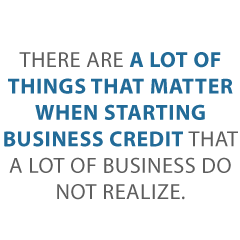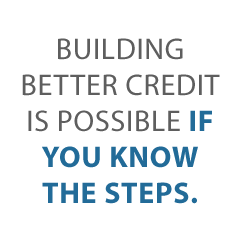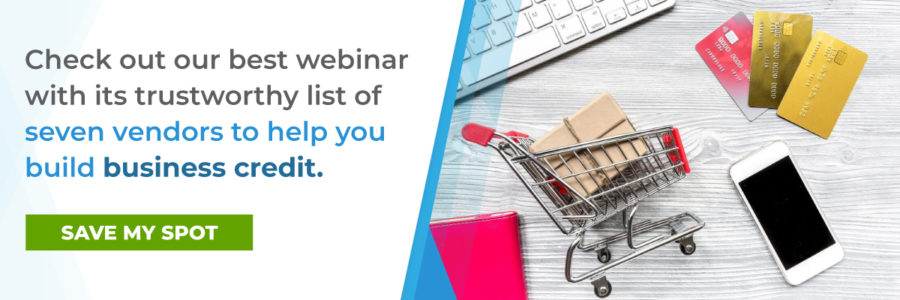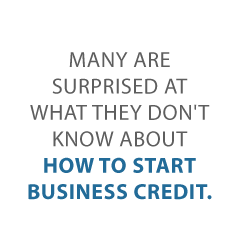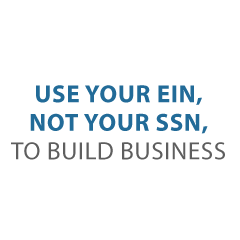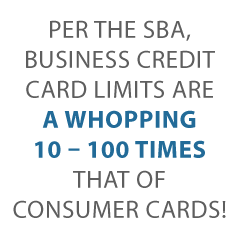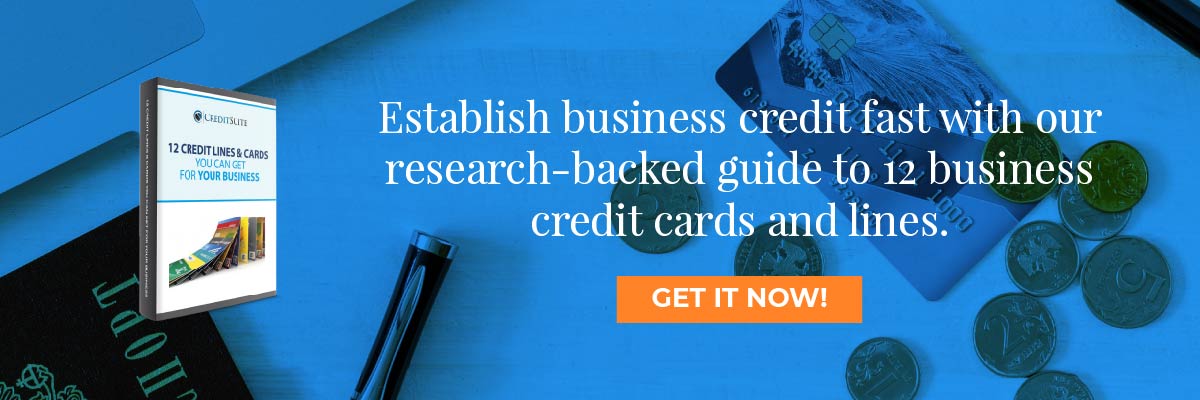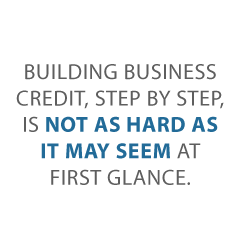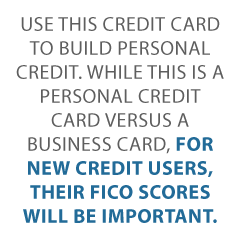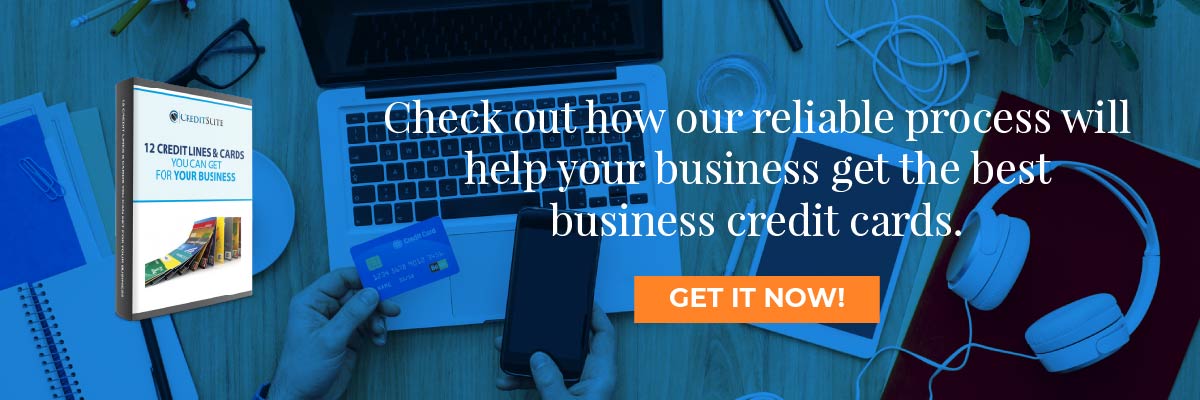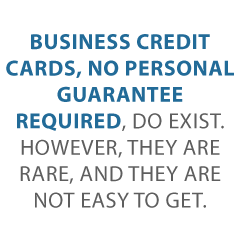
Starting Business Credit – Why Your Business Address Matters
Did you know that your business address matters when it comes to starting business credit? Your address matters. And there are other things that can make a difference. Here’s how you can start off on the right foot when it comes to business credit.
Your Business Address, and 5 Other Things You Didn’t Know Make a Difference When Starting Business Credit
When you first start a business, you may not be thinking about anything other than how to pay for it and how to get customers. Many businesses start small from home. They operate in either an extremely intimate area, or they work mostly online. Social media-based businesses have exploded in recent years.
That being the case, new business owners often simply use their home address as their business address. It’s the easiest thing to do, and makes sense after all. I mean, if you are running your business out of your house, why wouldn’t you use your home address?
What frustrates you the most about funding your business? Check out how our free guide can help.
Looking into the future however, you are going to need to build business credit. For that, your business needs its own address, separate from your personal address.
Why Is Starting Business Credit Important?
If you have great personal credit, business credit probably never even crossed your mind. You just figure you can get all the funding you need based on the merits of your personal credit score. If your personal score isn’t the best, you may have explored other options and realize that business credit is a thing.
Here is what you may not know, either way. You cannot just apply for credit in your business name and assume that any credit you get is business credit. Unless you set up your business in a very specific way and follow a very intentional process, those accounts are going to report to your personal credit. This is true even if you apply with your business name.
Why does this matter? There are a few reasons actually. First, personal credit simply cannot handle the spending necessary to run a business. You will either exceed your limits continually or consistently hover near them. Even if you pay off your cards each month, staying near limits can affect your score negatively. It results in a high debt-to-credit ratio, and that will cause your personal score to drop.
Conversely, cards obtained on the merits of your business credit will usually have higher limits. That means more spending power. Not only that, but if there is and issue with your business debt, your personal credit will be protected because those accounts will not be on your personal credit report.
How to Get a Business Address
Now that you know why you need business credit, you need to know how to get it. Like I said, there is more to it than just applying for credit using your business name. Your business has to be set up a certain way. You also have to be intentional about getting accounts that report to business credit rather than personal credit.
For your business to be set up in a way that is conducive to building business credit, it needs to be easily recognizable as a fundable entity separate from the owner. One of the first steps toward accomplishing that is for the business to have an address different than the owner’s personal address.
The question that most business owners ask about this is, how do you get a business address that isn’t your home address if your business is in your house? Well, the obvious first option is to get a P.O. Box. That works for some things, but some lenders want to see a physical address.
Of course, if you are running a business online or from your home, you are wondering how you can do that. The answer is a virtual office.
What frustrates you the most about funding your business? Check out how our free guide can help.
What is a Virtual Office and How Does it Work?
According to Investopedia, “A virtual office gives businesses a physical address and office-related services without the overhead of a long lease and administrative staff. With a virtual office, employees can work from anywhere but still have things like a mailing address, phone answering services, meeting rooms, and videoconferencing.”
Basically, virtual offices operate as a single unit. Sometimes there is a physical location that has meeting rooms and such available as needed. However, more often it is operated solely online with a physical mailing address and other services you can use, as mentioned above. These services are ideal for those that need a physical address but do not need an actual office.
3 Stellar Options for Virtual Offices
If You think a virtual office space is best for your business, here are three top options to help get you started.
Davinci
Davinci offers a prime business address with options to hire a receptionist, book meeting space, and live chat. Prices are variable. Call for a quote or go here to learn more.
Alliance Virtual Offices
Alliance offers a physical address, office space, mail services, and phone answering services starting at $125. Go here to learn more.
Regus
In addition to virtual office services, Regus has options for meeting rooms and more. Find out more here.
What Else Matters: 5 Other Things You Didn’t Know Make a different When Starting Business Credit
Separating your business from yourself for the purpose of starting business credit takes more than having a separate business address. Here are some other steps that you must take to make your business appear fundable on its own to lenders.
You Need a Business Phone Number Before Starting Business Credit
This is for pretty much the same reason that you need a business address that is different from your own. Your address and phone number are both identifying factors that point back to your personal credit report. If you associate them with your business, you run the risk of business accounts reporting on personal credit.
Your business phone number should be toll-free, and it needs to be listed in the business directories. You can handle this at: http://www.listyourself.net/ListYourself/
You Need a Professional Business Website Before Starting Business Credit
Think about it. In today’s world, if you aren’t online do you really even exist? The first place anyone looks for anything is online. Having a business website is a must. You can’t just throw something together though. It is essential that the website be user friendly and well put together. It is almost always worth it to pay a professional to handle this. Oh, and don’t use a free hosting service. That does not look professional. Pay for hosting through a service like GoDaddy.
You Need a Dedicated Business Email Address Before Starting Business Credit
This goes along with the other separate business contact information. Don’t use your personal email address as your business email. Also, make sure your business email has the same URL as your website. A free email service such as Yahoo or Gmail will not serve you as well.
Your Business Needs to Formally Incorporate Before Building Business Credit
If you operate as a sole proprietor or a partnership, there will never be enough separation between you and your business to build separate business credit. You need to formally incorporate as either a corporation, an S-corp, or an LLC. Here is a little more information about each of these options.
Corporation
This is the most expensive option, but it also offers the most protection from liability. There is a double taxation caveat with this option that is a turn off for most. Owners pay tax at both the business level and the shareholder level. In some cases, this is the best option anyway.
S-Corp
S-Corps are very similar to corporations, but double taxation isn’t an issue. There are also limits on the number of shareholders allowed among other restrictions set forth by the IRS.
LLC
An LLC, or a limited liability corporation, is the least expensive option. It still offers some liability protection, and has fewer restrictions than an S-corp.
Each of these options serves the purpose of further separating the business from the owner when you are looking to start a business credit profile. The option you choose should be the one that best suits your needs for tax purposes.
You Need a Business Bank Account to Start Business Credit Building
Another common practice of small business owners is to use their personal bank account for business funds. While in the beginning this seems like the best option simply because it is easy, it further mingles your personal information with your business information. Not only that, but it makes separating business expenses from personal expenses at tax time very hard.
You need a separate business account. When it comes to starting business credit, this helps in two ways. First, it helps to separate the business from the owner. Also, so lenders want to see a certain balance in a business bank account before approving credit.
Other Things You Need to Know Before Starting Business Credit
In addition to the things mentioned above, there are a few other steps you need to take to set up your business for starting business credit.
The EIN Wins in the Battle of EIN vs. SSN When Starting Business Credit
And EIN is the business equivalent of a social security number. If you use your SSN to apply for credit for your business, your personal credit will get involved. By using a unique identification number specifically for the business, you ensure that your business is separate from your SSN. You can get an EIN for free here.
You Have to Have a D-U-N-S Number to Have Business Credit
Here’s why. Dun & Bradstreet is the largest and most commonly used business credit reporting agency. If you do no have a D-U-N-S number, you cannot have a business credit file with them. You definitely need a business credit profile with D & B.
Choose Creditors that Work with the SBFE
The SBFE is a not-for-profit entity that gathers data on small businesses from its members. The data is then used to compile comprehensive credit information. Lenders that are SBFE members have access to this information. They use this information to make credit decisions.
The Small Business Finance Exchange does not lend money. It also does not create or distribute credit reports. What is does do is collect information from lender members on their borrowers. That information is then passed to D&B and Equifax. This means if you are doing business with SBFE members, you know your credit information is being reported, at least to those lenders that are members of the SBFE. Find out more about the SBFE here.
What frustrates you the most about funding your business? Check out how our free guide can help.
Other Ways to Get Accounts Reporting To Your Business Credit Report
Once you have your business set up properly, you can start to build business credit. If you do not already have strong business credit, you will have to start at the bottom credit tier, known as the vendor credit tier. These are starter vendors that will offer net terms on invoices without checking your credit. Then they will report your payments to the credit reporting agencies. However, they will often want to see an EIN, business bank account, or a listing in the business directories along with a certain amount of time in business or annual revenue. This is just one reason why setting up your business properly is so important.
After you get a few of these accounts reporting, you can apply for credit in the next tier, which is the retail credit tier. These are cards that you can only use in the stores that issue them, like a Best Buy card or an Office Depot card.
Once you have several of these accounts reporting positive payment history, you can apply for cards in the fleet credit tier. Those are cards from companies like Shell or Fuelman that can only be used for fuel and auto repair and maintenance.
Get enough cards from the fleet credit tier, and you can move on up to the cash credit tier. These are the cards that do not have limits on where you can use them or what types of expenses you can use them to pay. This is the top tier, and once you hit it you will see your business credit score start to grow like a snowball rolling downhill. That is, of course, if you handle your credit responsibly.
Not Having a Business Address can Kill Your Chances of Starting Business Credit
There is so much more to getting business credit than having a separate business address. However, if you have everything you need and you do not have a business address, that lack could definitely throw a kink in the process. Remember, you don’t have to have a separate location, just a separate address. Then make sure everything else is set up to separate your business from yourself. After that, you can start building strong business credit. The funding you need to run and grow your business will be right there when you need it.
The post Starting Business Credit – Why Your Business Address Matters appeared first on Credit Suite.

